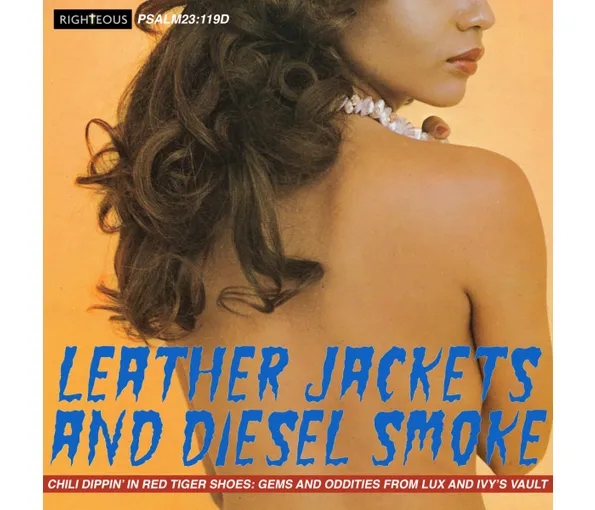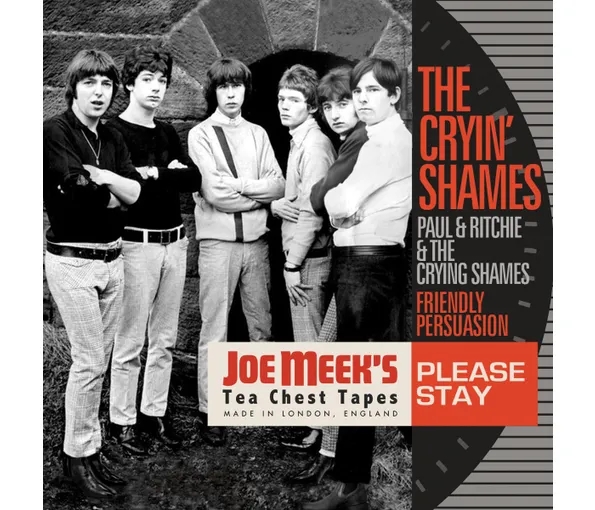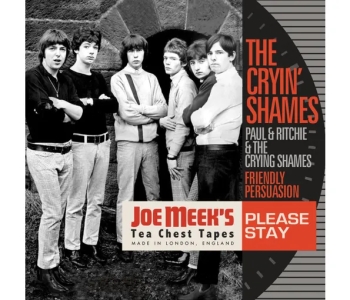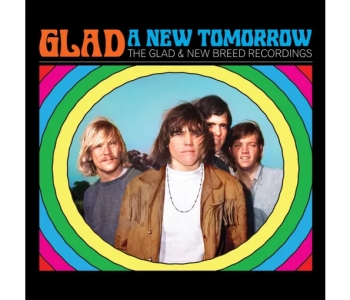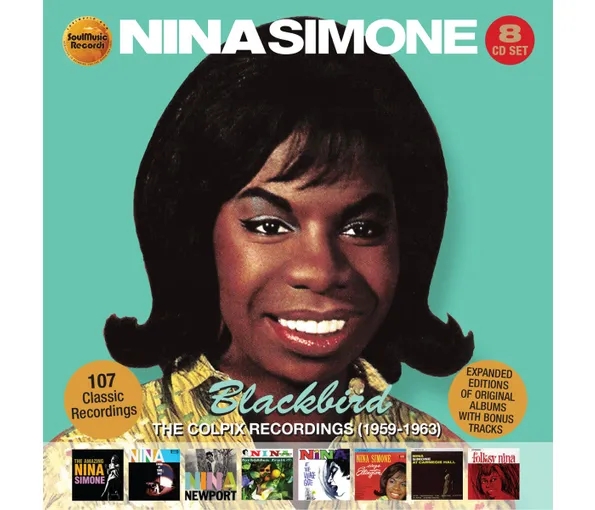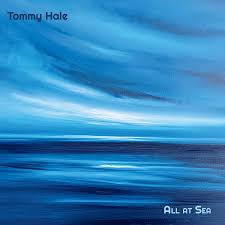
The Dream Academy – Religion, Revolution & Railways
The Dream Academy – Religion, Revolution & Railways
Cherry Red Records
7CD/DL
Out now
7CD set that includes all three albums by The Dream Academy, plus four discs of single sides, rarities and remixes. Ian Canty writes…
The roots of The Dream Academy lay in Nick Laird-Clowes’ late 70s Power Poppers The Act, at the point when new keyboard player Gilbert Gabriel joined up. Nick and Gilbert hit it off and even supported The Act as a duo called The Politics of Paradise, so it was a natural step to pair up when their parent band split up. In between the end of The Act and The Dream Academy recording, Laird-Clowes stepped away from performing to work a stint as a presenter on Channel 4’s musical flagship The Tube.
But when former member of The Ravishing Beauties Kate St. John bumped into Nick at a party, the idea he had of including “non-Rock & Roll” instrumentation as a part of his new outfit began to solidify. Her proficiency on oboe, accordion and cor anglais was added to by talent with the piano, sax and voice. The duo became a trio called The Dream Academy. Through the auspices of Rough Trade’s Geoff Travis, they caught the interest of the US arm of Warner Brothers, who signed them up. In the UK it was Travis’ WEA-distributed fake Indie Blanco Y Negro that would put out their records.
Moving onto the band’s self-titled debut album that is featured as disc one of this set, what is presented is a odd but not unappealing mix of low-key Post-New Wave Pop allied to a range of late 1960s influences. Straight out of the traps comes the song that would introduce the band to the world in 1985, Life In A Northern Town. Its wordless, rhythm-driven refrain was so instantly memorable that it becoming the band’s first single release was always on the cards and as a 45 it duly became a hit in both the UK and US.
This was The Dream Academy’s calling card in effect and marked them out as offering something a little different. The Edge Of Forever came next on the LP and set itself up as a more typical 80s Pop tune for the times, whereas the lightness of touch on (Johnny) New Light is accomplished and assured. The World starts with a “White Riot” police siren, but couldn’t be further from The Clash’s debut sonically. It was the band’s second single, but didn’t repeat their debut 45’s success. Having said that, it is a pretty melody, if rather slight.
Bound To Be, a more up-tempo Funk number, is ok but doesn’t really feel like what the band is all about and the production by Dave Gilmour (the link with The DA being that his brother Mark was in The Act with Nick) and others is on occasion a little indistinct. The Love Parade restored The Dream Academy to the UK and US single charts and it successfully crosses a breathy vocal style with a purposeful momentum. Acoustic guitar helms a bright effort called The Party and The Dream Academy LP ends with the short One Dream, which owes a bit to early Aztec Camera. It is a record of its times and I couldn’t help but feel they should have leaned further into their interests in the field of Psychedelia. Definite promise is shown here though.
Please, Please, Please Let Me Get What I Want, a minor UK hit cover of The Smiths song, was The Dream Academy’s last charting 45 a year before the Remembrance Days LP emerged in 1987. This collection makes up disc two of Religion, Revolution & Railways. Indian Summer sat in the Life In A Northern Town position on this one and to some extent followed its formula. A gently evolving beauty is finely portrayed and this tune deserved to make more of a mark when it was issued as the first single taken from the album. The Lesson Of Love was the follow up 45 and an appealing number that also might have made some headway on the charts.
Next Humdrum comes over as the band’s best attempt so far to update late 60s Pop songwriting and the delightfully fresh opening to Hampstead Girl could even be said to pre-empt St Etienne’s work a decade on. Next Here overlays synth drones onto a pastoral Baroque Pop beat and In The Hands Of Love works in some neat R&B inflections. After these two, Doubleminded’s modern Pop Funk seems to belong to another timeframe. A cover of The Korgis’ Everybody’s Got To Learn Sometime and the multi-part In Exile (For Rodrigo Rojas) wraps things up for this disc.
Four years would pass before the final LP by The Dream Academy A Different Kind Of Weather appeared and the shuffling electro beats on the version of the John Lennon song Love soon alerts the listener to the fact we’re in the Post-Baggy 1990s. It was another unsuccessful single, but the Psych touches really fit what The Dream Academy were aiming for. Mercy Killing’s steady rhythmic pattern sounds like single material too, even if the title’s darkness doesn’t exactly scream radio airplay. The following song, an alluring Lucy September, builds up a head of steam well.
Waterloo, heralded by train noise sound effects and needless to say not the Abba tune, comes with slow, slow electric shimmers to add to the emotional pull. St. John’s work here is excellent and vital. The swinging, pure Pop number of Twelve-Eight Angel opened up the second side of the vinyl album and a second and final cover in Tim Hardin’s It’ll Never Happen Again is endowed with a dreamlike quality. The production on this record by the returning Dave Gilmour really fits, drawing beauty out of the churning guitars on Forest Fire and Lowlands, the latter of which features the kind of big chanted hook that goes right back to the band’s beginnings. The acoustic Folk of Not For Second Prize puts a tidy full stop on A Different Kind Of Weather.
Disc four moves towards the part of Religion, Revolution & Railways may attract hardcore DA fans, featuring a selection of non-album single sides and alternate takes. This begins with the US mix of The Love Parade and the aforementioned Smiths cover that also cropped up in the Ferris Bueller soundtrack LP. B side Girl In A Million, about Warhol muse Edie Sedgwick, is one of their most convincing efforts and In The Heart, only issued as a single in Japan, ably draws on Folk motifs.
A bright number The Chosen Few gleams with warm Pop appeal, with Hampstead Girl’s backing vocal mix being for me even better than the full version. Sunrising, at this point in time the last Dream Academy single A side, exhibits an easy, sunny pull, with 1989 flipside The Demonstration’s acoustic Folk touches entrancing. Two different cuts of The Last Day Of The War, the first an instrumental preamble, end a disc that stacks up well against the band’s LPs.
Next we have the Be-Sides disc, which despite its name also collects up some demo or unissued versions. The Day It Rained Forever is launched via a queasy synth line, but still carves out some strange Pop majesty and a genuine flipside in a soaring Poised On The Edge Of Forever if anything owes even more to Electropop. Test Tape No.3 comes across as touchingly wistful and not unlike The Teardrop Explodes’ lighter moments, with Things We Said Today also being rendered in similar fashion. I really enjoyed this part of the set and couldn’t help but wish The Dream Academy had stuck with this sound.
Living In A War clunks with electronics, whereas Immaculate Heart is filled with a woozy warmth. This disc ends on the unreleased House Of Heartache, where a slow and steady tempo is buffeted by odd swoops and the band’s assured vocal chops. Again this disc is a real positive for Religion, Revolution & Railways.
We launch into the instrumental side of The Dream Academy on disc six, where vocals are expunged from most of the 13 offerings. Without the vocal Please Please Please Let Me Get What I Want actually was heard on screen in Ferris Bueller’s Day Off and it gets this disc underway in a nicely understated fashion. Power To Believe work beautifully stripped back and Kate’s lyrical way with the cor anglais really comes over on Here. In The Hands Of Love comes with plenty of vocals to buck the theme, with In Exile then prospering without vocals. Instead of instruments, massed voices are manipulated well on In Suspendium, the brief closing item of this disc.
The final section of this set is called Love Etc and features six versions of that song. An extended Life In A Northern Town is a good place to start and a very 80s sounding Angel Of Mercy 12/8 mix comes with a solid percussive thump. B side Mordechai Vanunu has a pared-down musical palette, something which helps the song flourish and my favourite of the Love mixes was the thoroughly club-orientated Dream House cut. The Love Whales In Love take also works very well in taking things right down. The trippy strings of Heaven Pts 1/2 act as the parting shot to the disc and Religion, Revolution & Railways.
It is a shame that Nick Laird-Clowes’ liner notes in the booklet that accompanies this set only really cover the early activity of the band. It would have been good to have read how they went on after the debut LP was released, but otherwise the presentation here is suitably lush. The Dream Academy showed flashes of real inspiration and made three good to fair albums. For me, the unissued material included here on the whole makes out a better case for them than the stuff released during their lifespan. The extras not only provide a fuller picture, but are some of the real highlights here. This helps to put forward Religion, Revolution & Railways as a pleasingly thorough rummage through The Dream Academy’s archive.
Get a copy of The Dream Academy – Religion, Revolution & Railways by clicking here




